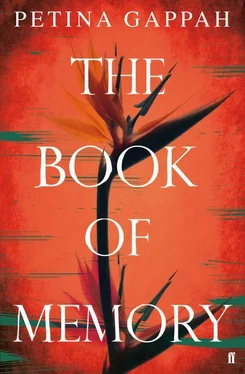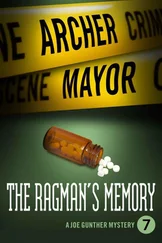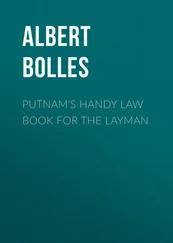Having been convicted of killing a white man gives me an almost talismanic effect. Even after the killings on the farms, there seems almost something surreal about the violent death of a white man; it does not seem real in the way that everyday deaths of black people are real. It is so out of the ordinary as to be fantastical, like something out of history: Nehanda ordering the death of Pollard.
To Jimmy, it does not seem to matter that I have been convicted of killing a man. All that she sees as essential in me is that I lived in a huge mansion in one of the northern suburbs. I once told her, exaggerating slightly, that each of our bedrooms had built-in closets and en suite bathrooms. ‘Hesi mhani, Memo,’ she sighed. ‘Jealous down!’
It was nothing at all like this. It is always hard to remember the impression that things made on you when you were a child. It is easy to recast what you now know to how you first saw them, and to see them again with an adult’s understanding. The first time I saw Summer Madness, I saw only a big house with pillars and columns and a veranda that seemed to go all around it.
What I see now is a house of heart-stopping gracefulness. It was one of the few private houses designed by James Cope-Christie, the neoclassical architect who put his graceful stamp on the city’s first buildings. Its simple purity, its almost unbearable loveliness, shines against the monstrous promontories that surround it now. It is the type of house that people with new money, diamond money, money from steel deals in China and Saudi Arabia and oil deals in Angola, will destroy to replace with a mansion of ten bedrooms, a kidney-shaped glitter-stone pool, a lock-up garage for six cars, and imported tiles and fixtures from Dubai.
The house is mine now; at least, I know that Lloyd left it to me in his will. That fact spoke against me at the trial. I have watched enough legal dramas to know that a convicted person cannot profit from the fruits of his own crime. I must remember to ask Vernah Sithole, the next time that I see her, what will happen to the house, whether it will be confiscated by the state, or whether Alexandra, as Lloyd’s next of kin, will inherit it now.
I try not to think about being released. Even if the thing I dare not think about happens, and I am set free, I cannot see myself ever living there again. I do not see myself ever going back to Umwinsidale. Jimmy calls it Umwinsdale, dropping the ‘i’ and consequently making a strange swallowing sound.
She knows the area well. For two terms when she was in grade four, she lived with her uncle, and went to St Joseph’s School in Chishawasha. She has never forgotten the long walk down Umwinsidale Drive, past the stables at Mahobohobo, crossing Enterprise Road and into Chishawasha, an inverted Umwinsidale with its thatched rural huts and sinewy, hard Mashona cows.
She keeps asking for more and more detail about the house. I have added more and more rooms, and a sauna and a Jacuzzi in addition to the swimming pool and tennis court that need no exaggeration. As we cleared out the Condemn, I heard her tell Verity that I was so rich that, when I wanted to get really hot and sweaty, I would go into a small room built just for that purpose, and that our house had rooms that existed only to lead into other rooms. ‘Lots of halls, entryways and corridors. Jealous down,’ she said. ‘Memo really lived the life. Kwete imi vana Verity munoite wonini.’
Verity protested that she had never hoed a field in her life. Jimmy said, well, just those two feet alone walking in a field is enough to do some hoeing. ‘You can get all the pedicures in the world, Verity,’ she added, ‘but you cannot do anything about your hoe-shaped feet.’
This is how things usually are with these, my unlikely best friends, Jimmy and Verity, the prostitute and the con artist. I moved away to get out of the sound of their argument.

The biggest surprise about prison is the laughter. There is laughter to go with sudden quarrels; there is malice and gossip along with acts of generosity. It is not unusual to find two women who were accusing each other of witchcraft the previous week clapping hands to each other as though nothing had ever happened between them.
It is not possible to sustain one emotion for too long. It is too taxing on the mind to always be angry, or always sorrowful. Pain in particular is too big a burden when you are in a confined space. I do not mean to sound like I am writing a self-help manual, but your mind truly is the only thing you can control when you are in prison. Your emotions are the only thing you can call your own.
Much of our time here goes to helping women with court cases, women on remand facing trial, women facing appeals on sentence, helping them to weave convoluted tales of innocence. It is at these trial preparation sessions that you find the most laughter.
Vernah Sithole has told me about the strategy sessions she has with her colleagues at the Advocates’ Chambers. It would amuse and impress her, I am sure, to know about the strategy sessions we hold in here, where the prisoners gather in groups to discuss strategy and rehearse procedure. Unlike the lawyers, what we discuss is not the law, as such, but how to play the system, how to beat it.
Jimmy, who has seen more police cells and courts than anyone else, and Verity, who knows everything there is to know even when she doesn’t, are the most active. Evernice also takes active part. Enough of her comrades have been rounded up in the last year to make her familiar with court proceedings.
Last week, as we took a break from working in the garden, we went over Beulah’s case. She has been on remand for more than a year. The charge she faces is assault with grievous bodily harm. If she is convicted, she faces a long sentence, at least five years, for hitting another woman with a bottle and wounding her.
‘You must point out that you have been on remind for a very long time now,’ said Verity.
‘Remand,’ corrected Monalisa. ‘It is remand, not remind.’
‘And you must remember,’ said Jimmy, ‘that a magistrate is your worship, not your lord. Your lord is a judge.’
‘No, no,’ said Verity, ‘what are you talking? She must say my worship and my lordship.’
‘My worship sei futi . Do you think you are in church?’
‘But anyway,’ Evernice interrupted, ‘you don’t need all that, because you can just speak in Shona and the translator will find the right words for you.’
‘Those translators are the dangerous ones, manje ,’ said Verity. ‘Why do you think that Patience wants to be a translator? They are the people with the power. They are the very people who will really fix you for ever, like if you say something that is too difficult for them to translate, hodo , they will just say whatever comes to their heads, and the next thing you know, ketshke .’
She made the sound of a key in a lock. ‘ Ketshke ,’ she said again.
‘So I should speak in English, should I?’ Beulah asked. ‘I have four O levels plus a D in English. I can speak in English if that will help.’
‘Yes, use English,’ said Verity. ‘The magistrates will be impressed because they do not expect someone who goes around thumping people in the street to speak in English.’
‘Don’t speak in English,’ said Jimmy, ‘because everyone will think kuti uri wonini, that you are just too high-class and they will want to fix you.’
They all turned to me. I had famously used English, and only English, at my trial. In my first week in prison, I had overheard Jimmy tell Evernice that even when I cried, I cried in English. ‘And she even laughs in English,’ she had added, with what sounded like admiration. ‘Kwete imi vana Evernice munongoseke dzvandu.’
Читать дальше













